
Threelegged Symbol of Sicily Ceramic Plaque Italian
The Sicilian three-legged symbol, known as the Trinacria, is a fascinating emblem that encompasses a rich history and deep cultural significance. This unique symbol portrays a human head with three legs radiating outwards, forming a triangular shape.

Sicilian Trinacria symbol 3 legs with snakes face word Sicilia color
The Sicilian flag shows a mythological figure: a head with three legs, called Trinacria. Its origins are very ancient and not well known. MENU MENU.. Home » Travel Blog of Sicily » Trinacria,the symbol of Sicily. Catania Office. Piazza Federico di Svevia, 32 Catania (CT) Sicily, Italy. (+39)371 39 19 561 [email protected]. Taormina.
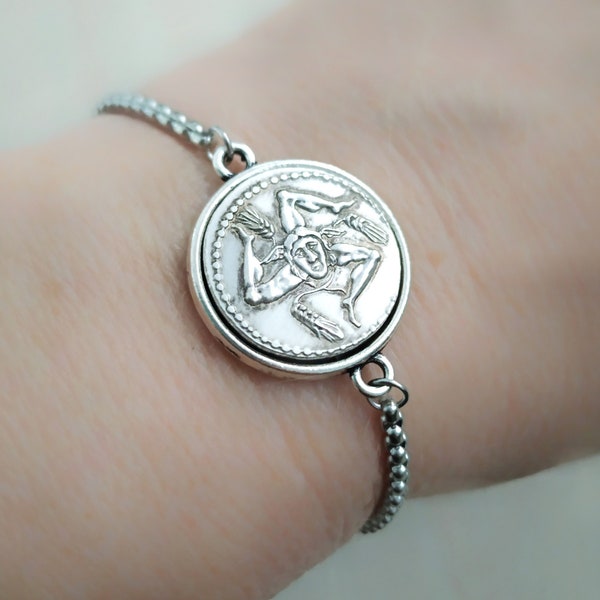
Isola Sicilian Etsy
The Trinacria, a symbol composed of three legs joined at the hips and bent at the knees, has deep roots in the cultural history of Sicily. It has played an important role in religion, art, and government throughout the ages. The symbol is thought to represent the three corners of the island, and its original meaning remains somewhat of a mystery.
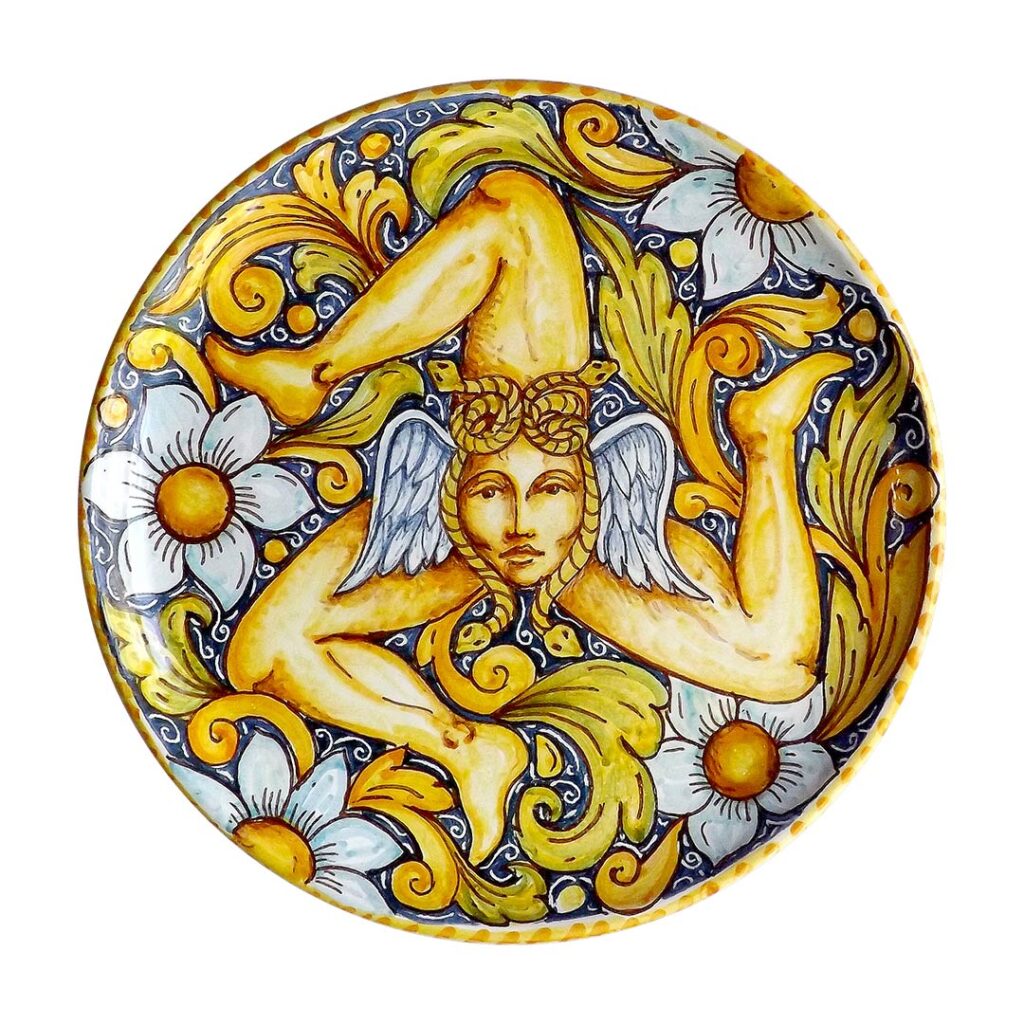
Threelegged Symbol of Sicily Ceramic Plaque
Sicilian flag is red like lava and yellow like wheat, with three legs like its three edges, but this is not all. This regional symbol has deep historical and religious roots, which make Sicilians what they once were and what they still are, as if it was the chest of their most untouchable secrets

flag of Sicily adopted in 1282. Depicts triskelion (trinacria), winged
A triskelion or triskeles is an ancient motif consisting of a triple spiral exhibiting rotational symmetry or other patterns in triplicate that emanate from a common center. The spiral design can be based on interlocking Archimedean spirals, or represent three bent human legs.

O Símbolo De Sicília De Três Pés Que Representam Três Cantos Do é Foto
The head is surrounded by three legs. Hence the name three-legged woman - which it is also called. The three legs refer to the three corners of Sicily.. It is a symbol of Sicilian identity and independence. The head of the Medusa was first seen in this context in 1282. That was the year of the rebellion of Sicilian Vespers. Later, it came.
Ancient Sicilian Symbols
October 31, 2019 Found on the Sicilian flag, hung outside Sicilian homes and businesses, and sold in trinket form in the streets of Sicily is the mysterious Trinacria: the symbol of Sicily. Three bent legs likely belonging to a woman, protrude from the head of hideous mythological gorgon Medusa. Venomous snakes grow from her head in place of hair.
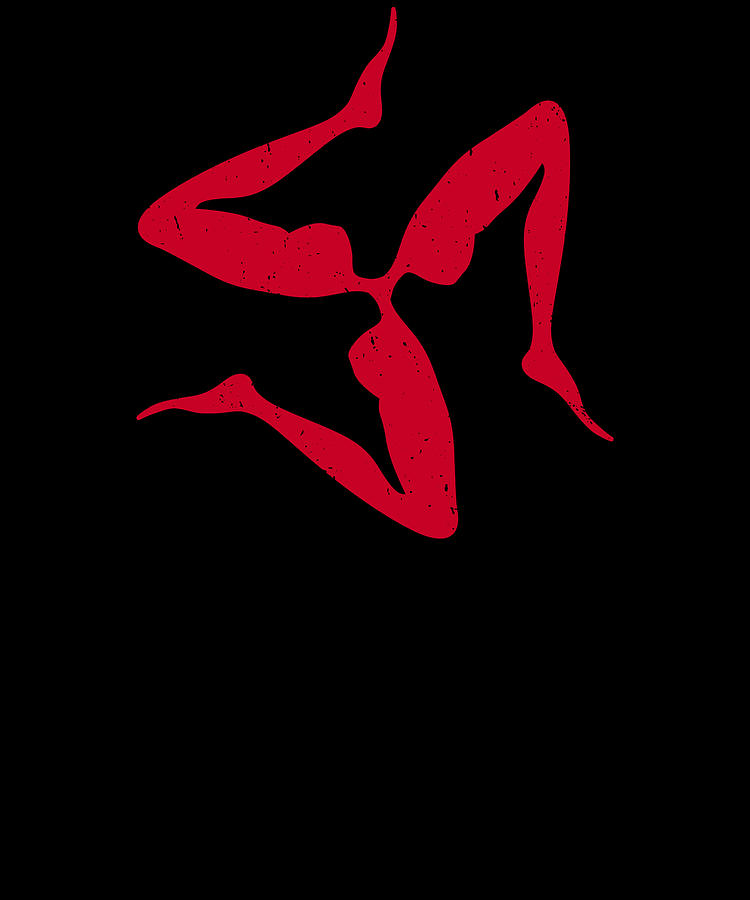
Sicilian Three Legs Symbol In Japanese Red Trinacria Or Triquetra
The symbol of Sicily known as the Trinacria or Triseklion is said to be derived from a myth about three nymphs. They are said to have danced all around the world gathering the best fruit, stones and soil, they then threw all of it into the sea and created Sicily.

The Threelegged Symbol Of Sicily Trinacria Stock Photo Download Image
Posted on February 24, 2021 Most Instagram-able spots in Paris Found on the Sicilian flag, hung outside Sicilian homes and businesses, and sold in trinket form in the streets of Sicily is the mysterious Trinacria: the symbol of Sicily. Three bent legs likely belonging to a woman, protrude from the head of hideous mythological gorgon Medusa.

Trinacria Coin Necklace Ancient Sicilian Italian Three Legged Etsy
The Trinacria, also known as Triskelion, is the familiar three-legged symbol of Sicily.. Everywhere you go in Sicily, you will see a Trinacria, the symbol of our beautiful island. And if you are tempted to bring one home, you'll have plenty of choices, from sophisticated ceramic Trinacria wall plates from Caltagirone to inexpensive fridge magnets. Of course, we do hope that you'll go for.

The Threelegged Symbol of Sicily Trinacria Stock Photo Image of
The symbol of Sicily - Trinacria When you think of Sicily, what comes to mind? The crystal-clear waters of the Mediterranean? The delicious Italian cuisine? The rich history and culture that permeates every corner of the island? Well, there's one symbol that captures all of that and more: Trinacria. This three-legged figure is the emblem

Sicilian, Apron, Free Design, Tool Design, Symbols, Zazzle, Gifts
In Sicily, there is a very recurring symbol, found not only in the region's flag but also in textiles, ceramics, jewelry, magnets and postcards. It is the Trinacria, a three-legged head that perhaps represents in toto the true essence of this magical island. A symbol that comes from afar.
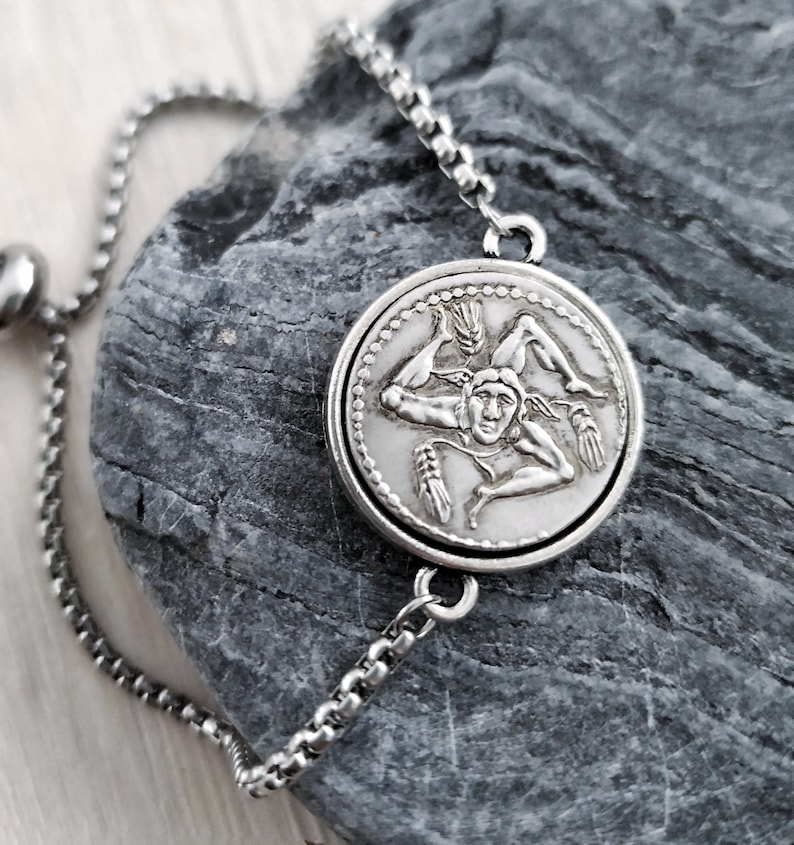
Trinacria Coin Bracelet Ancient Sicilian Three Legged Symbol Etsy
The symbol is known as 'Trinacria,' which originates from the Greek word for 'three-pointed' or 'three-legged.' It was the earliest known name of the island of Sicily and referred to the triangular shape of the island. The name was revived during the Sicilian Vespers (1282) when it came to be re-interpreted as a name for the Sicilian symbol itself.

105 Typical Trinacria Stock Photos Free & RoyaltyFree Stock Photos
The Triskelion, known in Sicily also as the Trinacria, is the three-legged woman that symbolises Sicily. First adopted in 1282 by the Sicilian Vespers , it is currently the official flag of the autonomous Sicilian region. Officially, the Trinacria became the Sicilian flag in 1943, during the World War II.

Trinacria This Sicilian Symbol Has Got Legs! GRAND VOYAGE ITALY
The Trinacria, also known as Triskelion, is the familiar three-legged symbol of Sicily. Everywhere you go in Sicily, you will see a Trinacria, the symbol of our beautiful island. And if you are tempted to bring one home, you'll have plenty of choices, from sophisticated ceramic Trinacria wall plates from Caltagirone to inexpensive fridge magnets.
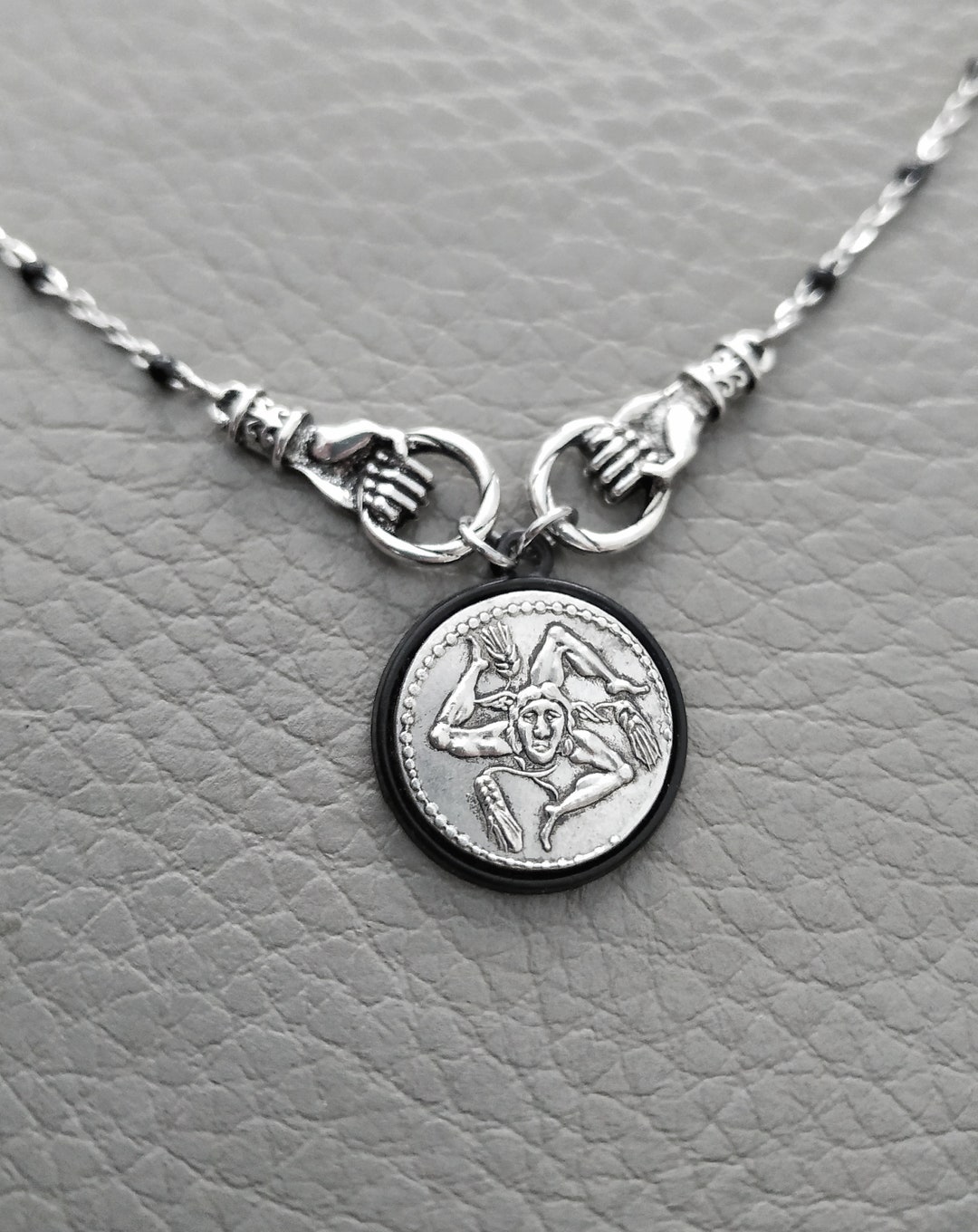
Trinacria Coin Necklace Ancient Sicilian Italian Three Legged Etsy
The Trinacria - of course the most famous symbol of Sicily it symbolizes the triangular shape of the island itself. The original Roman name of the Isle was Trina Crium which in latin means three pointed star. Although its very famous in Sicilian culture it did not actually appear on the Sicilian flag until 1943 when revolutionary Andrea Finocchiaro Aprile fought for independence.